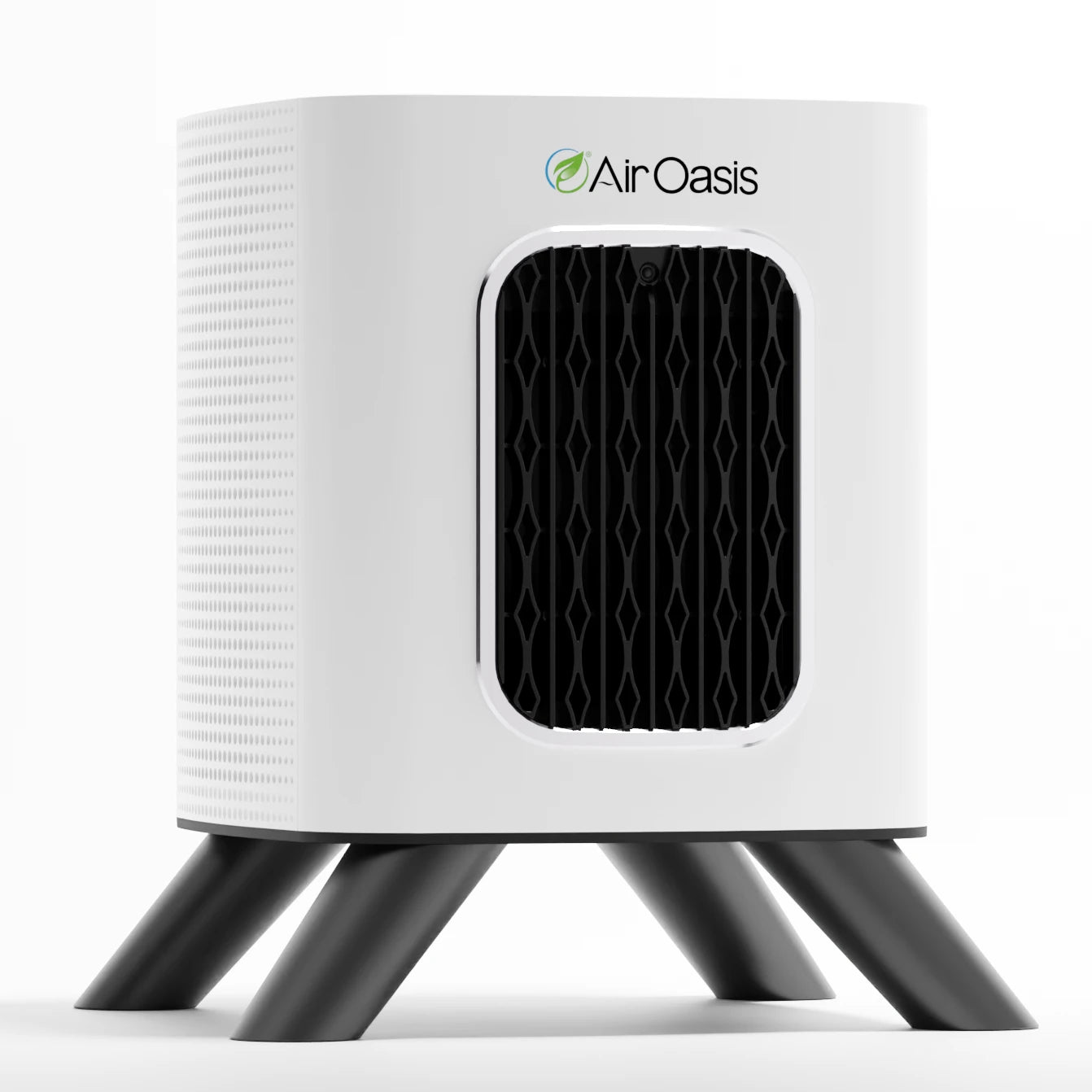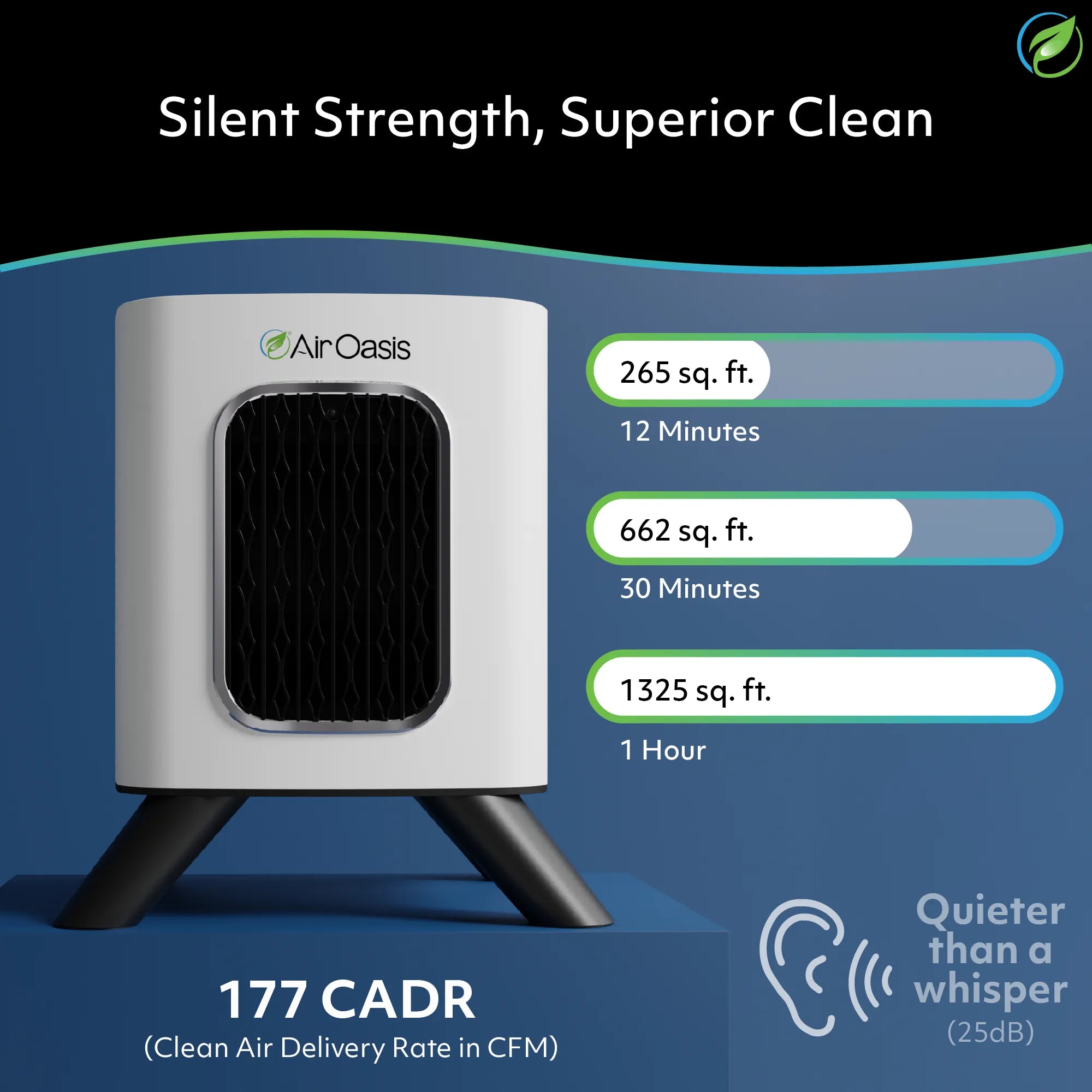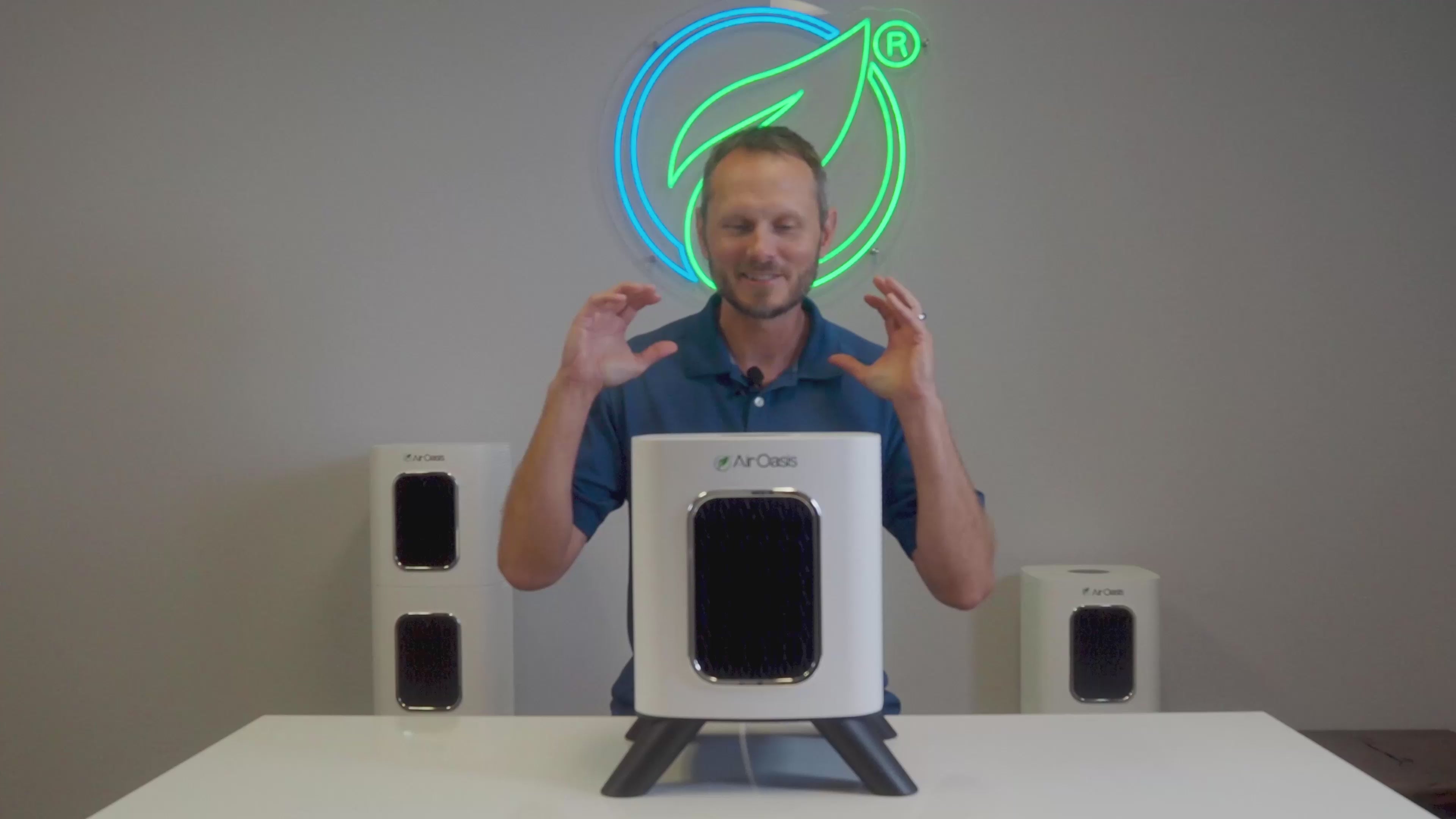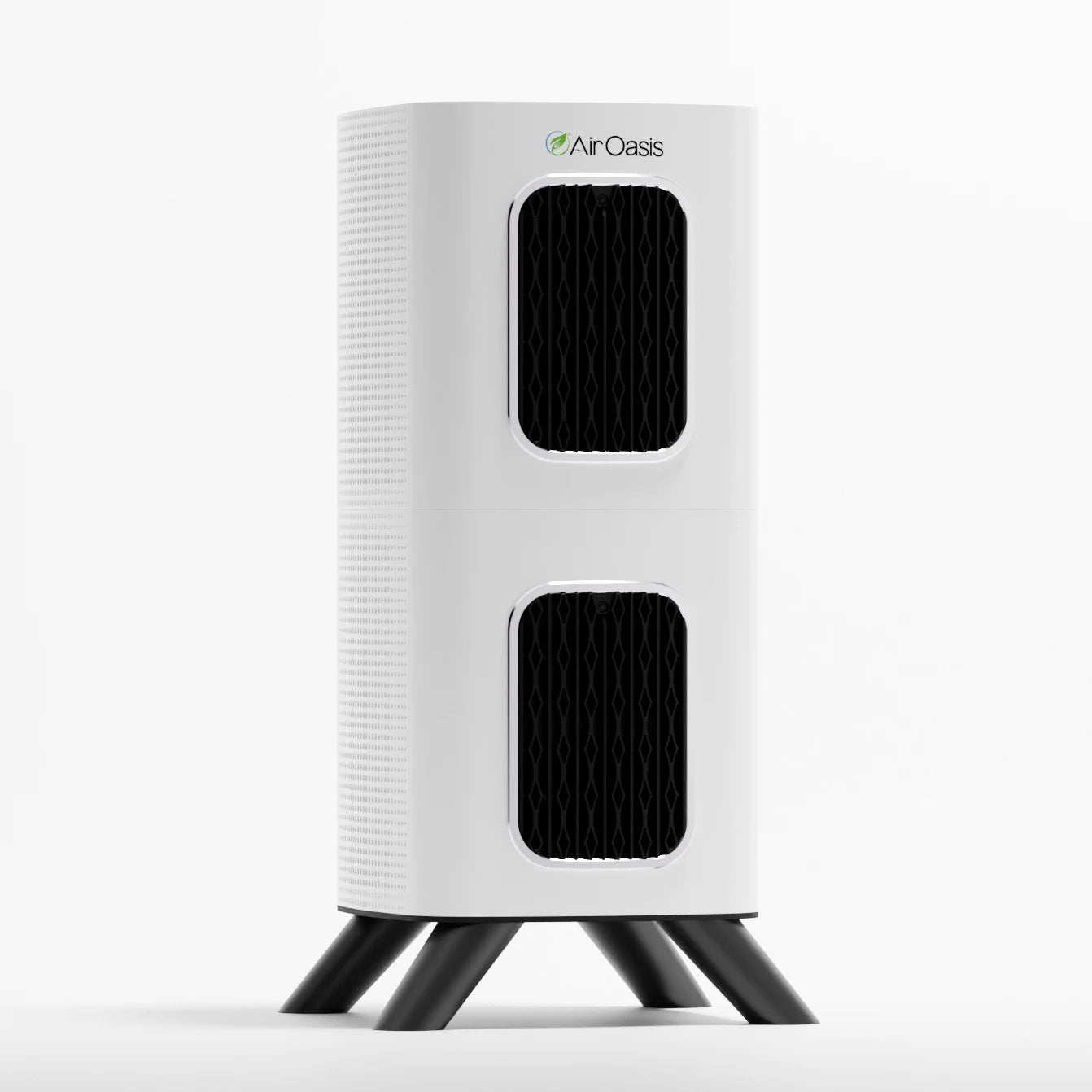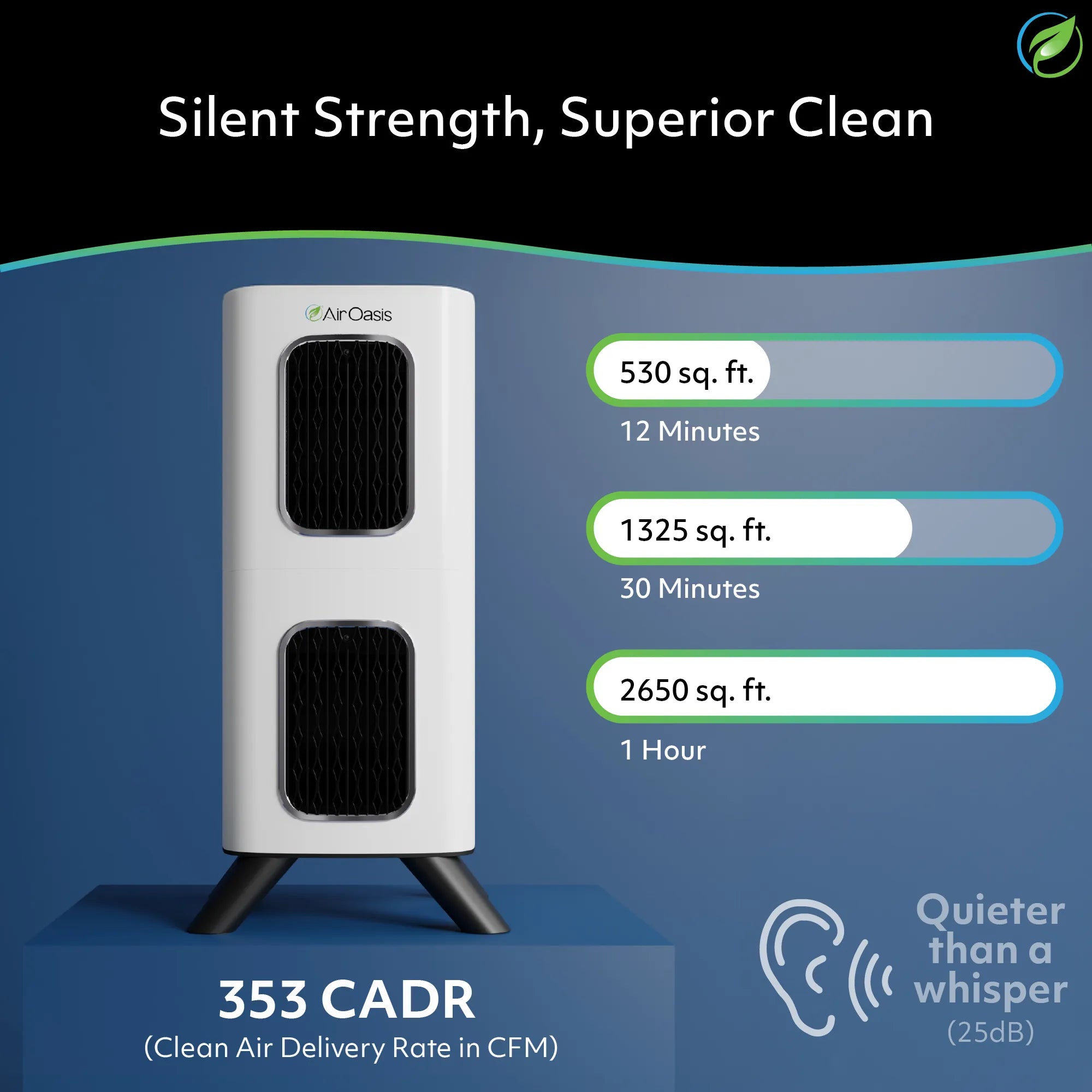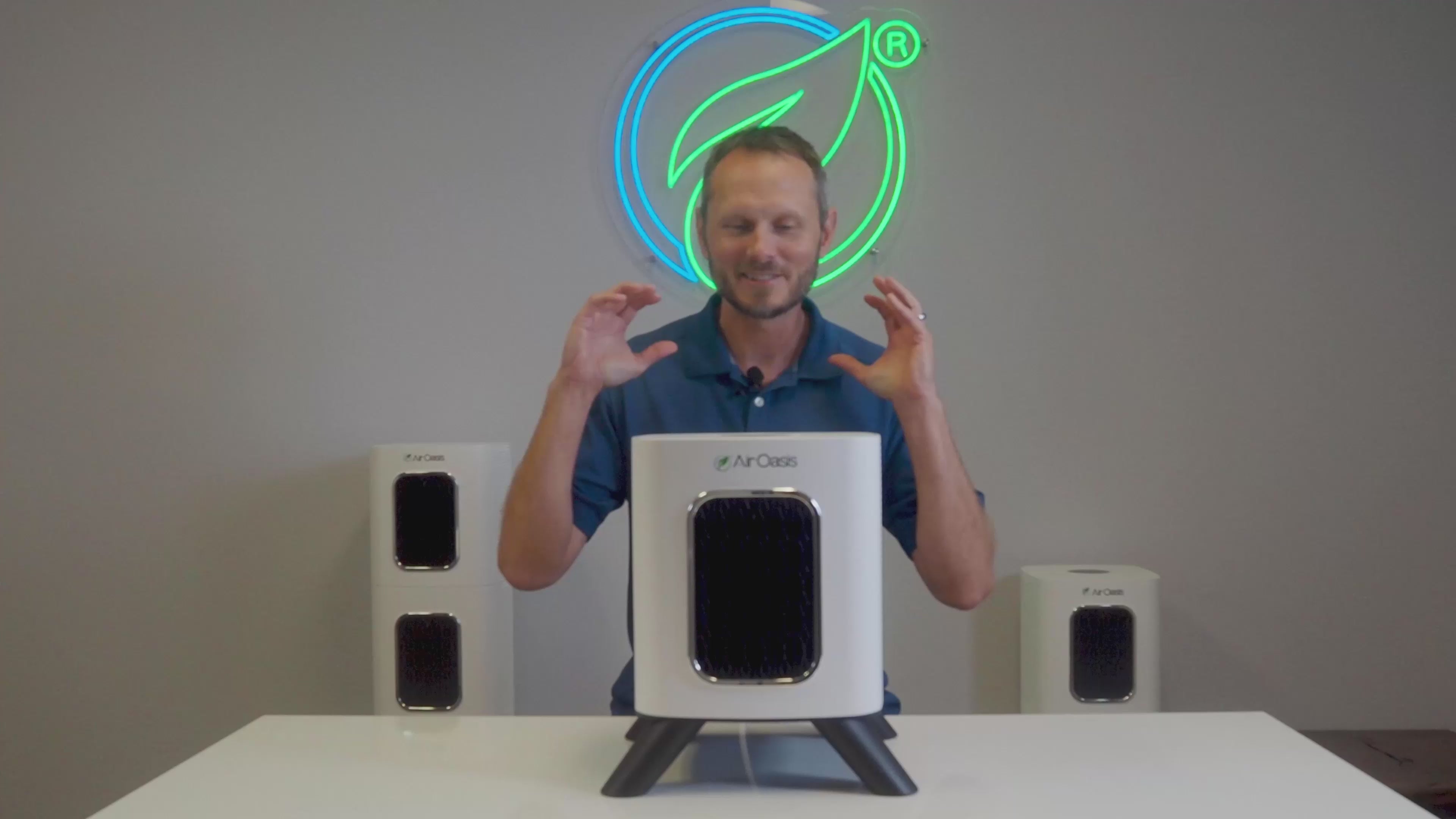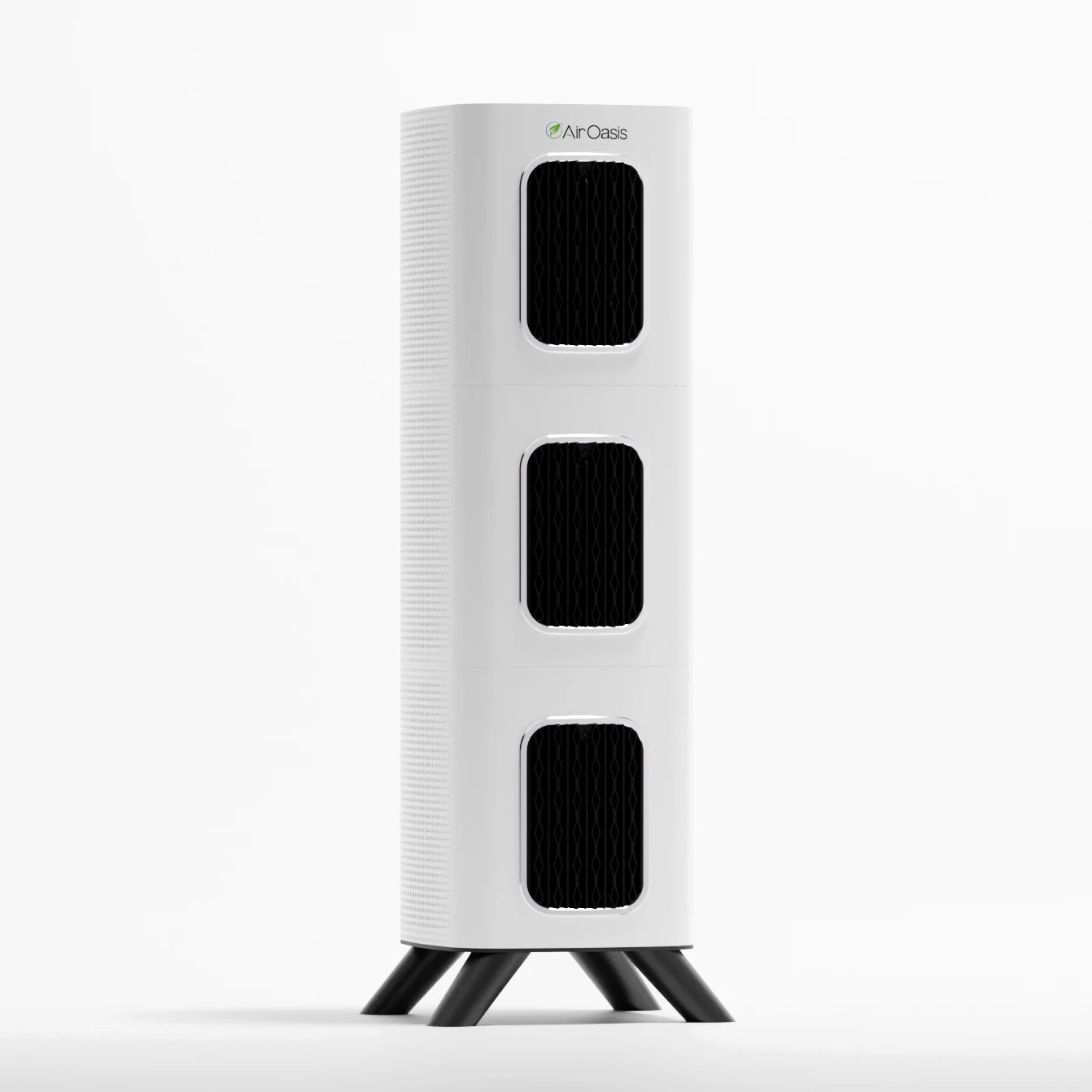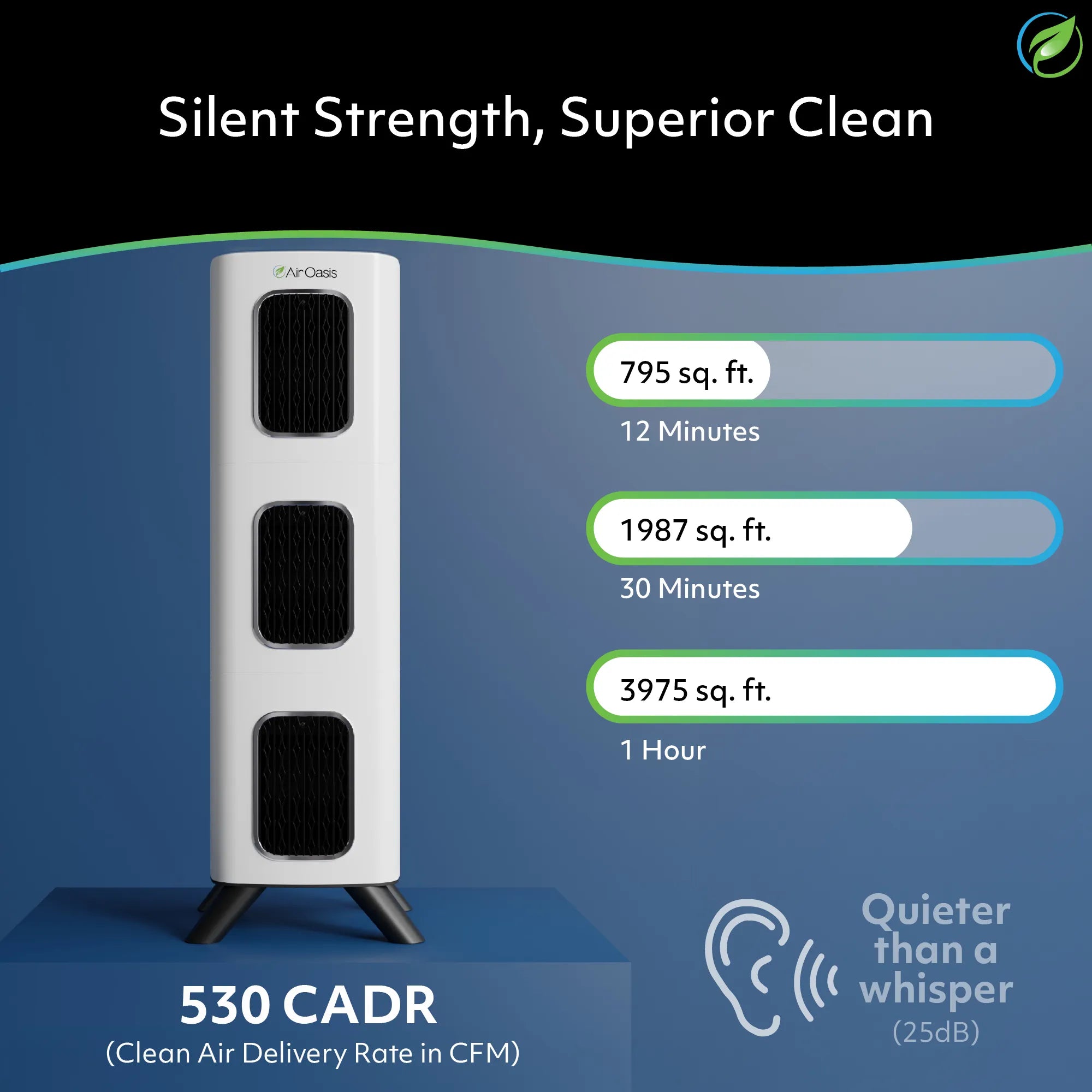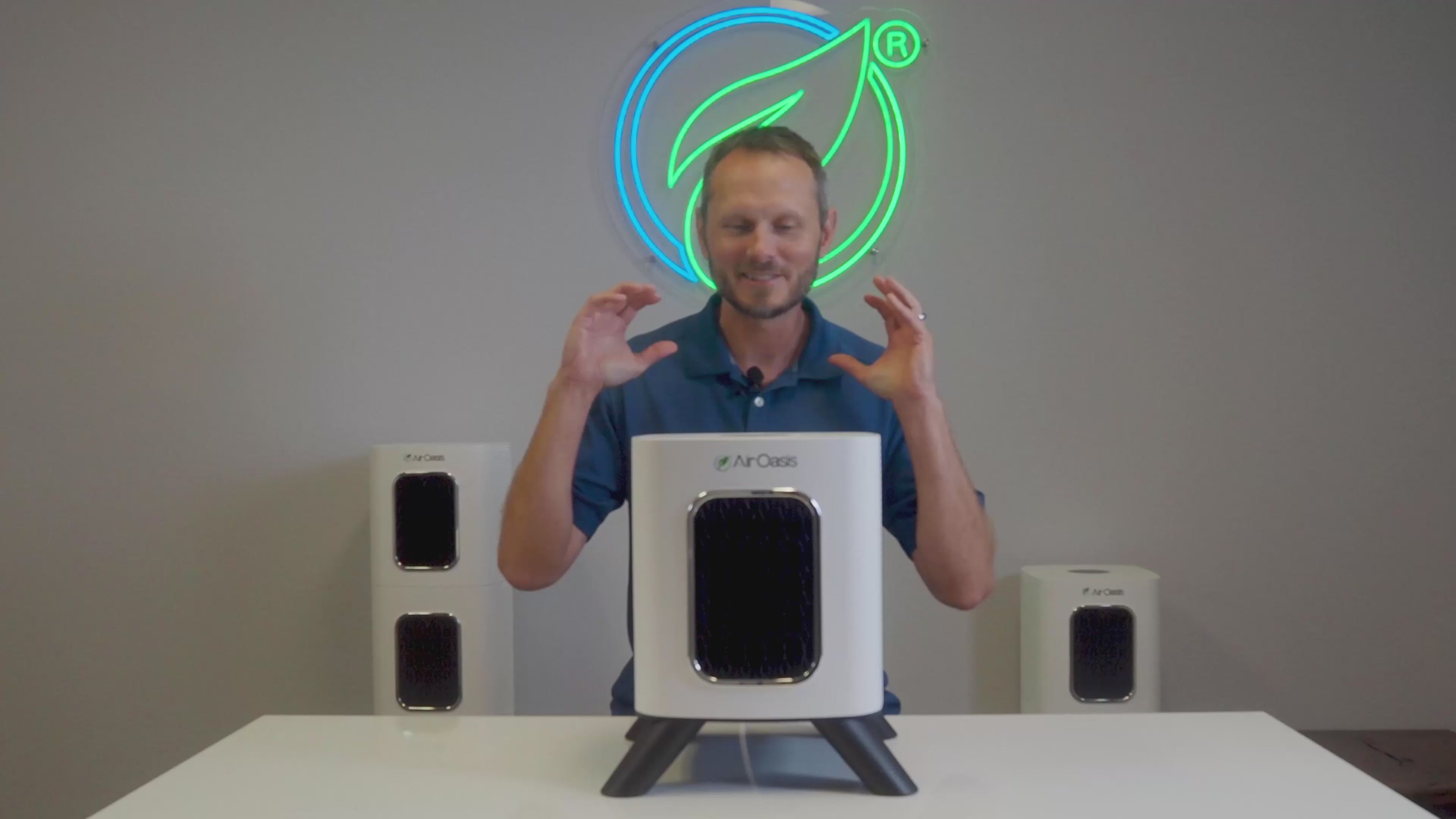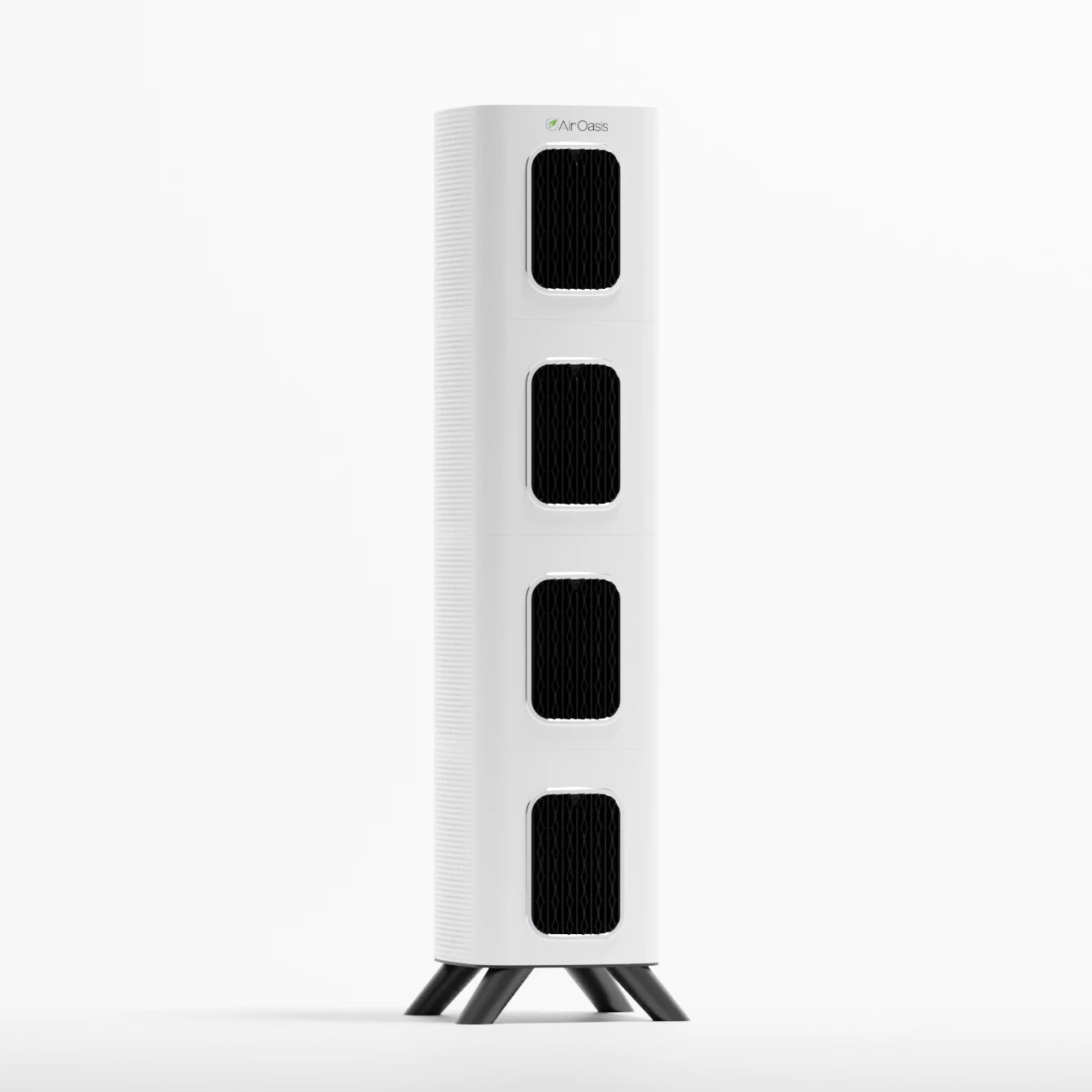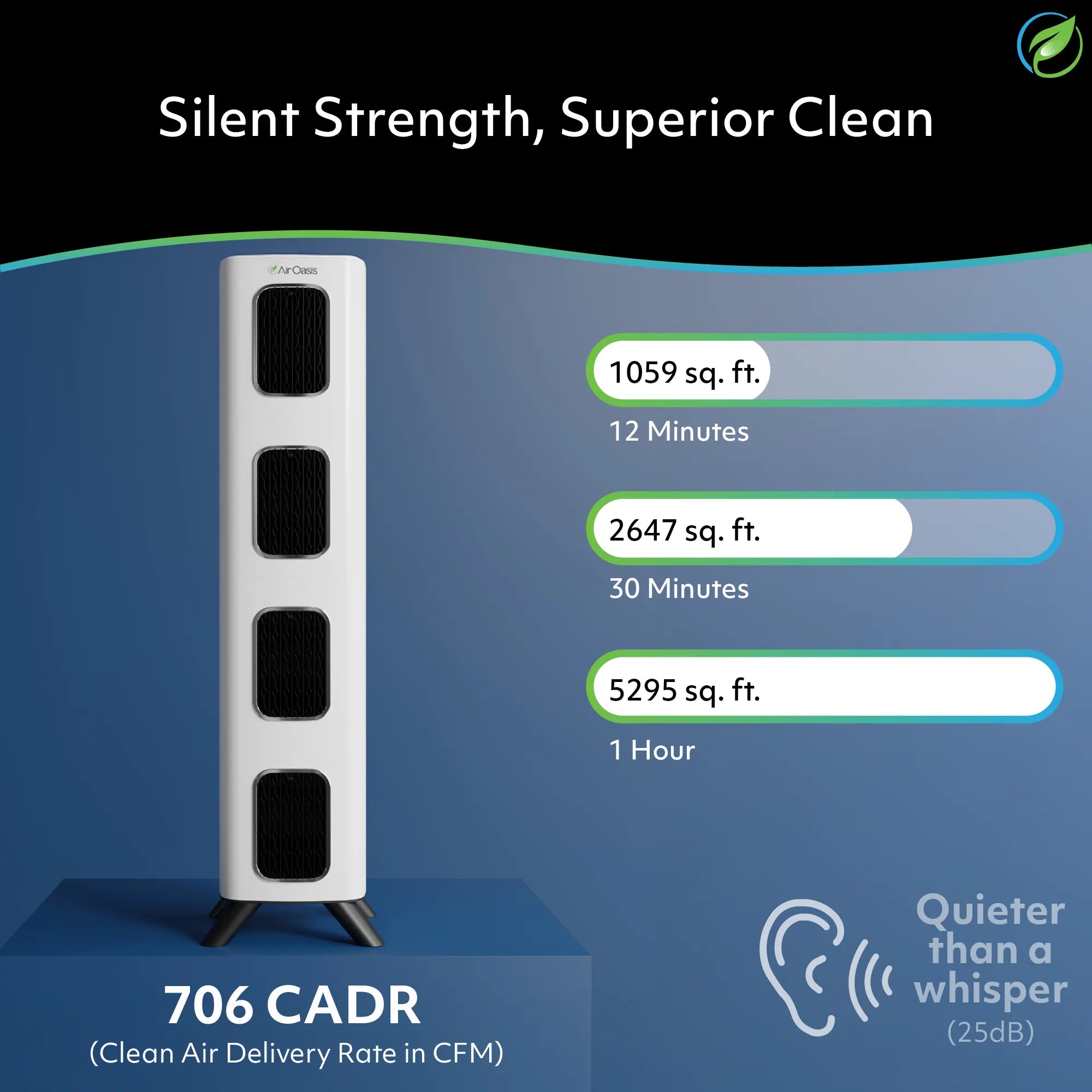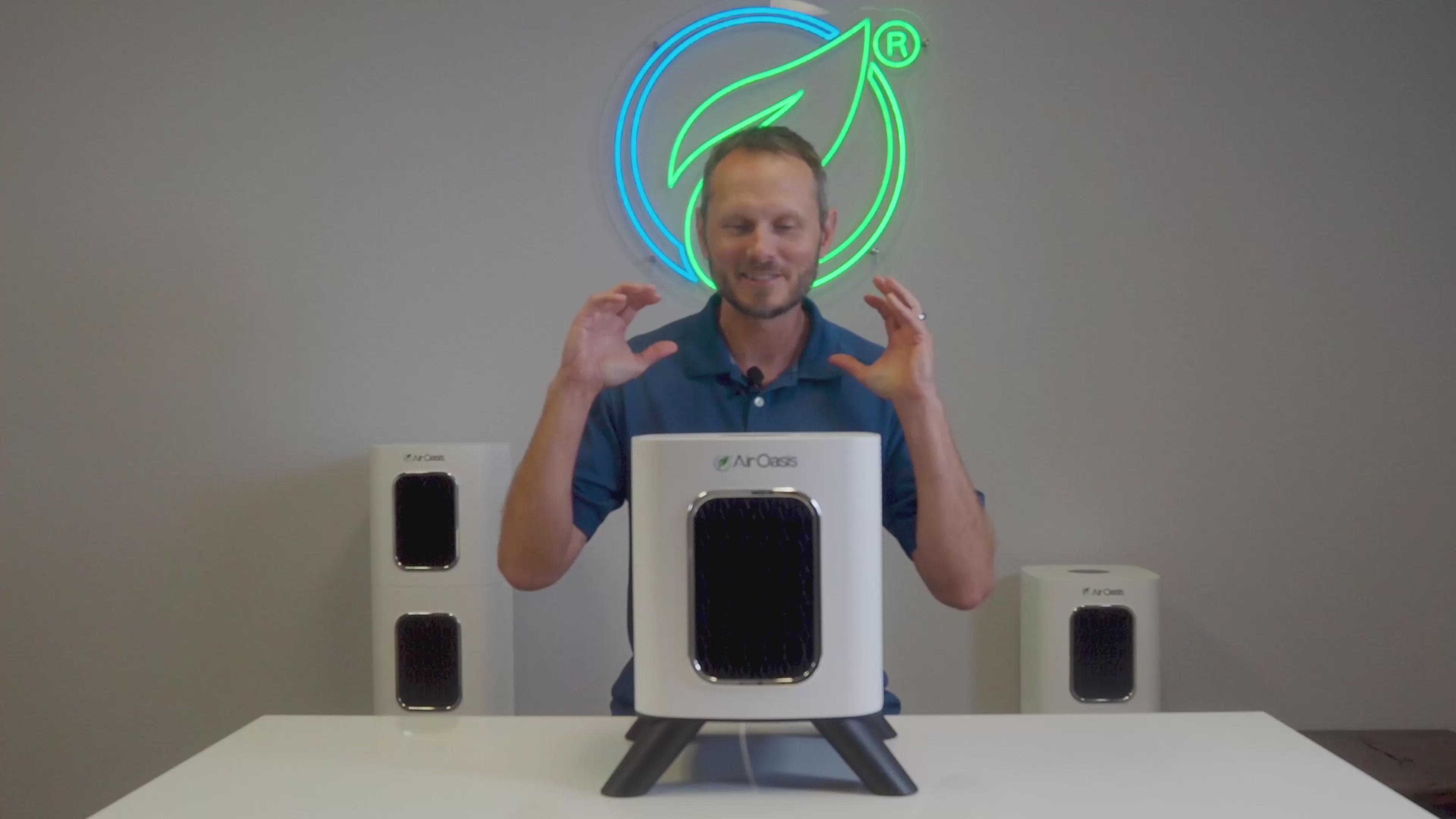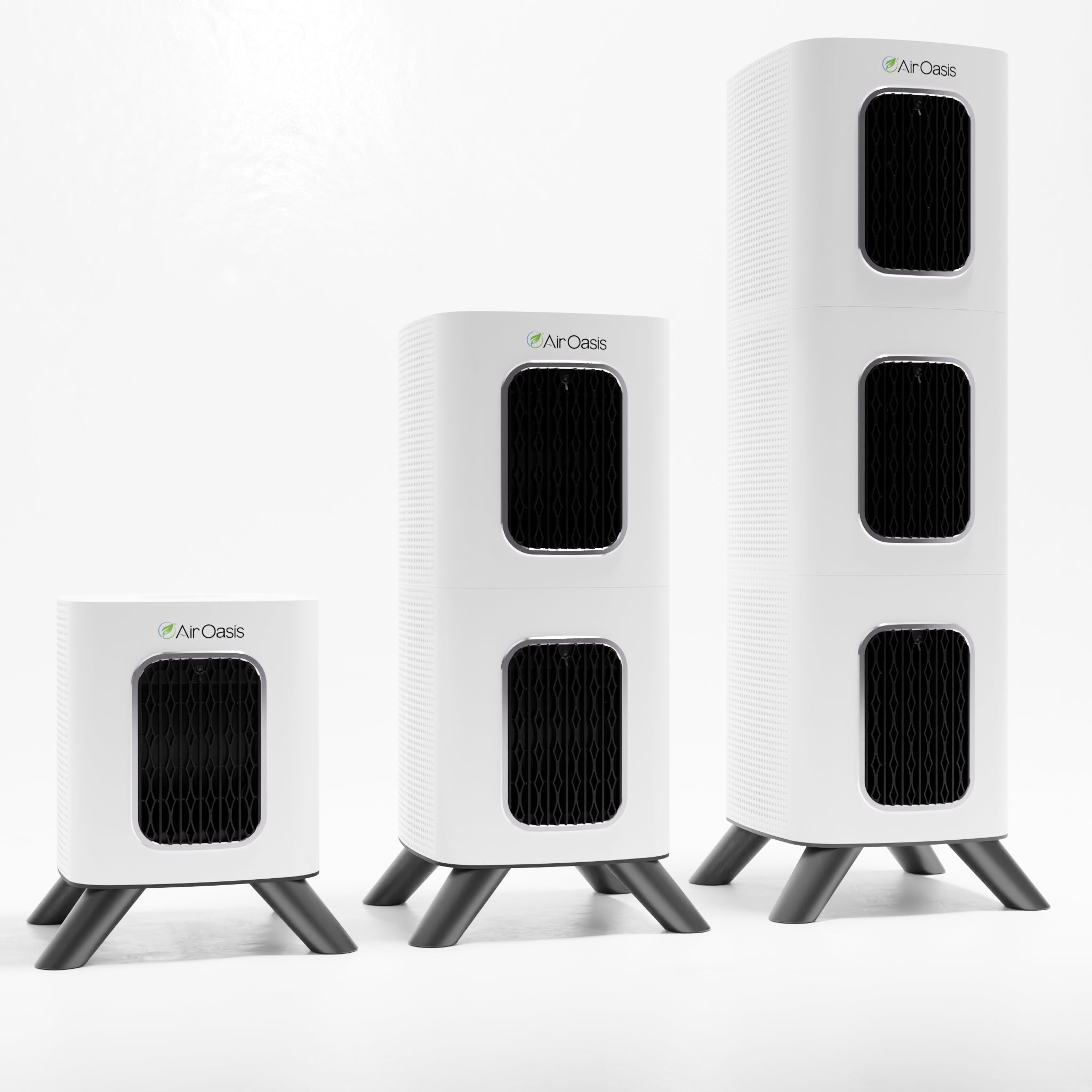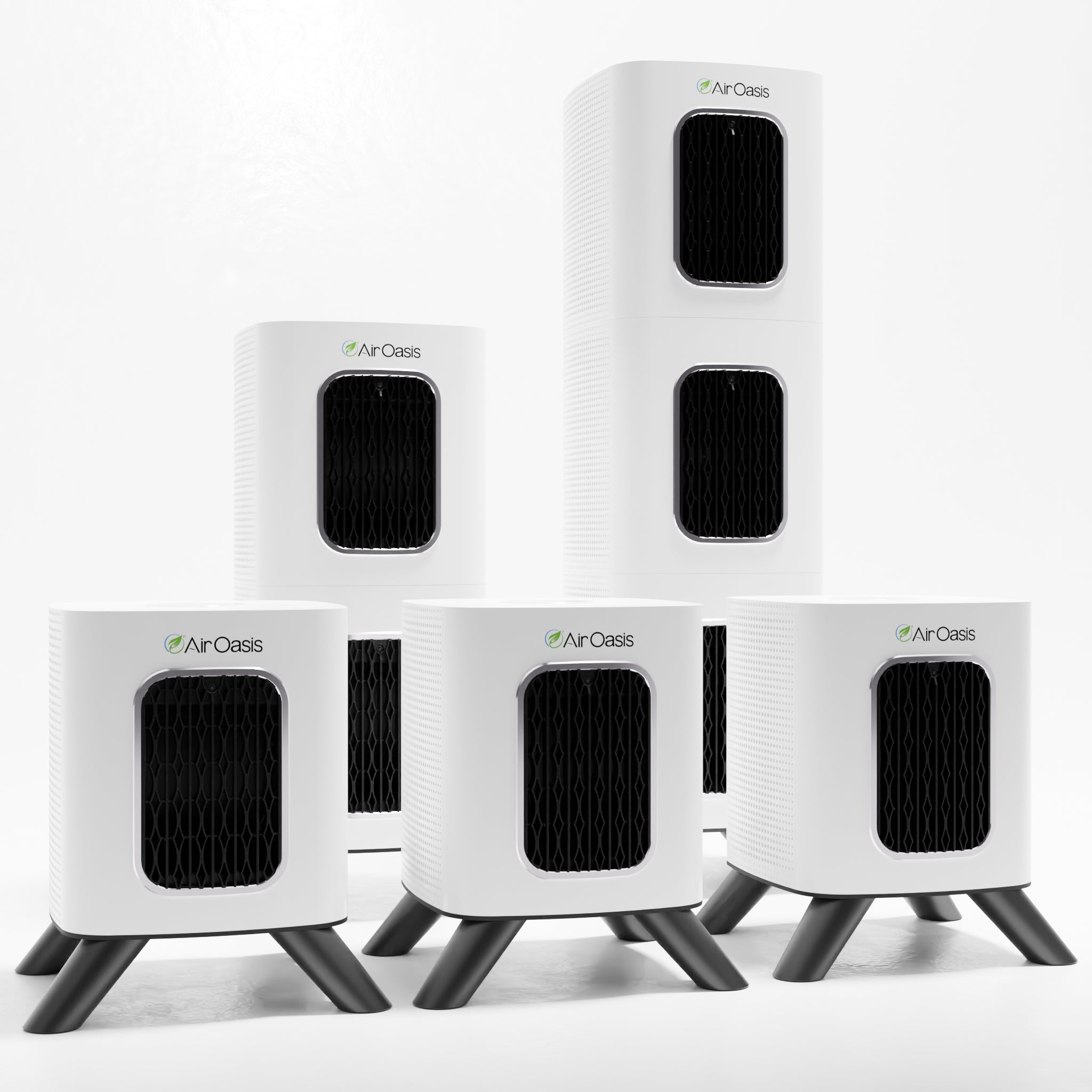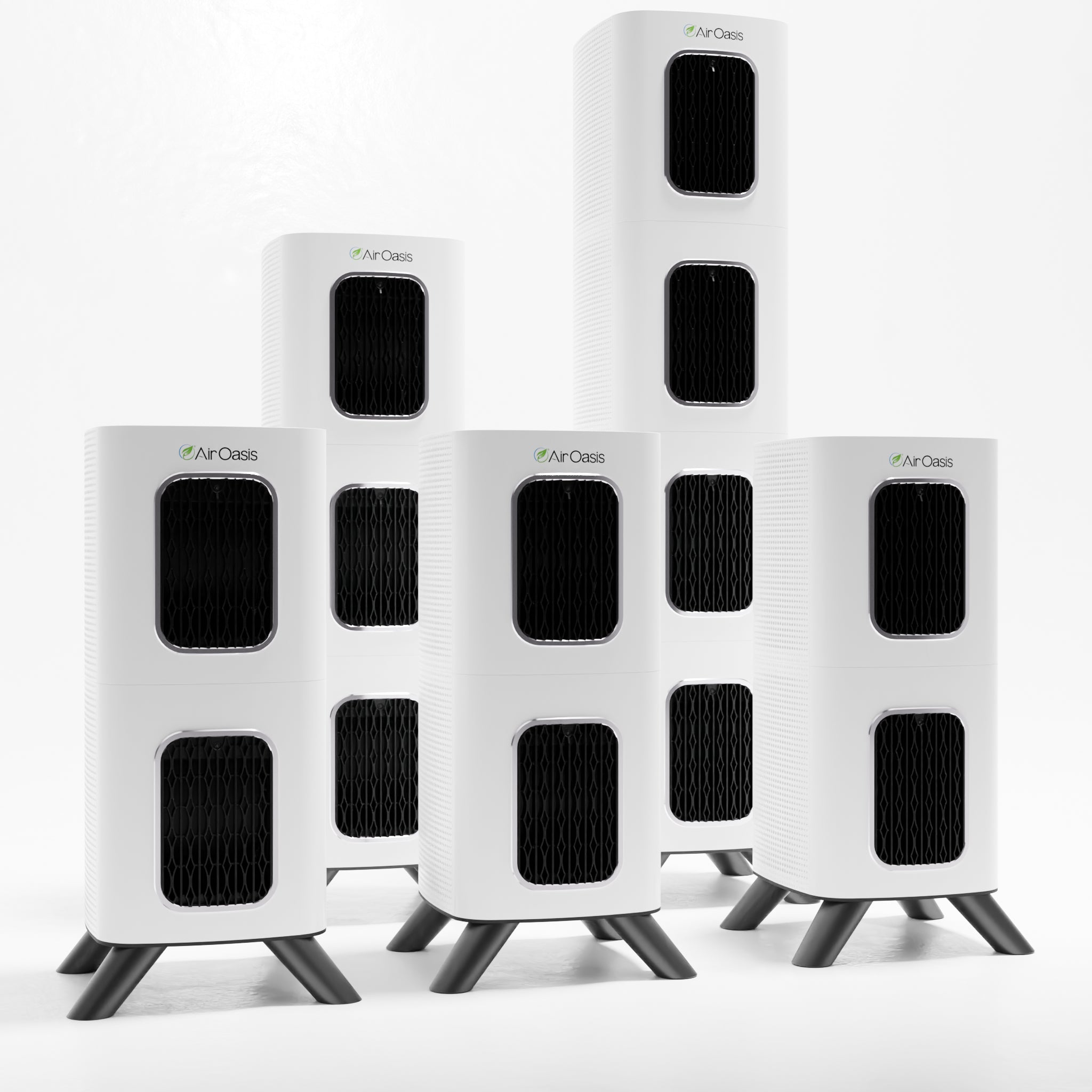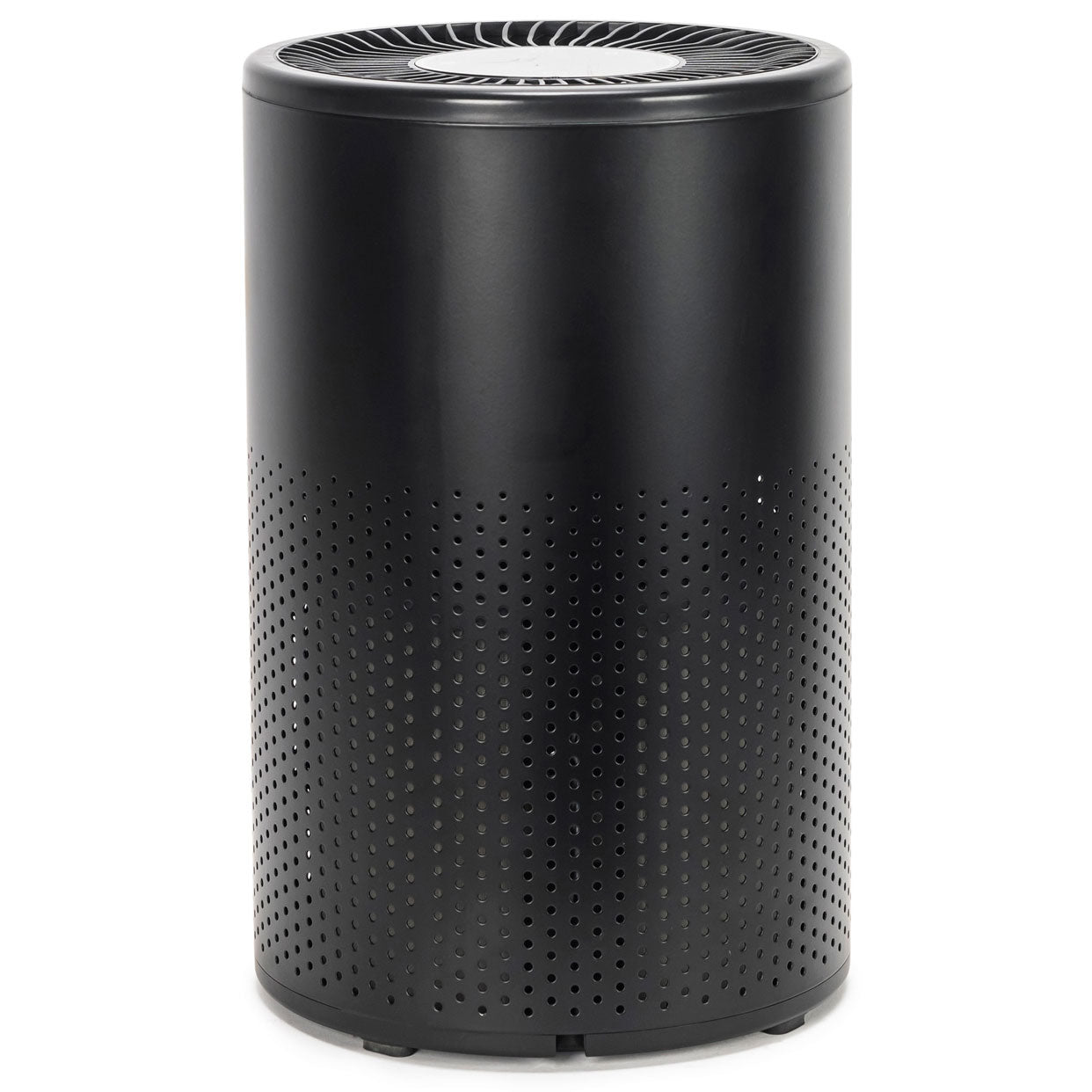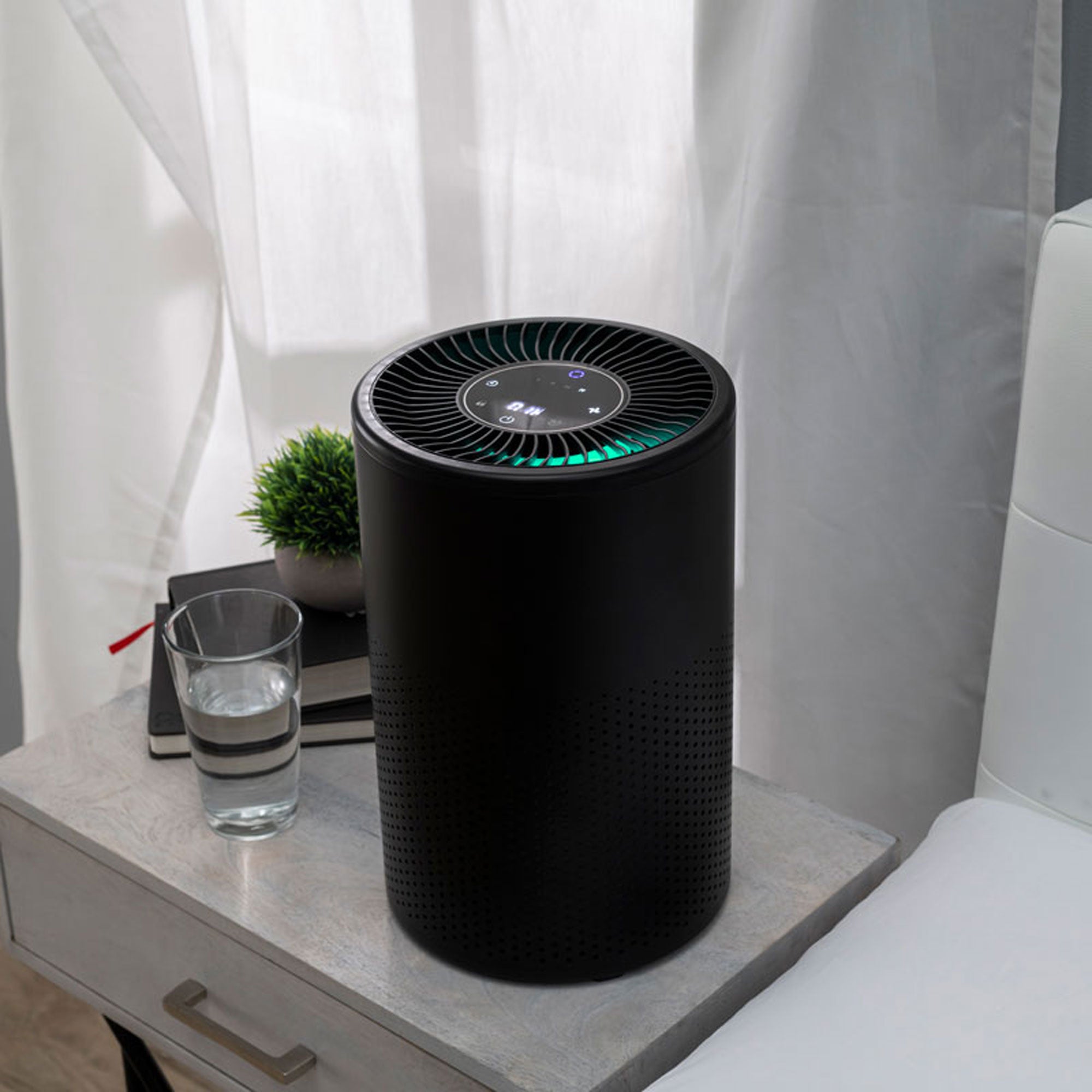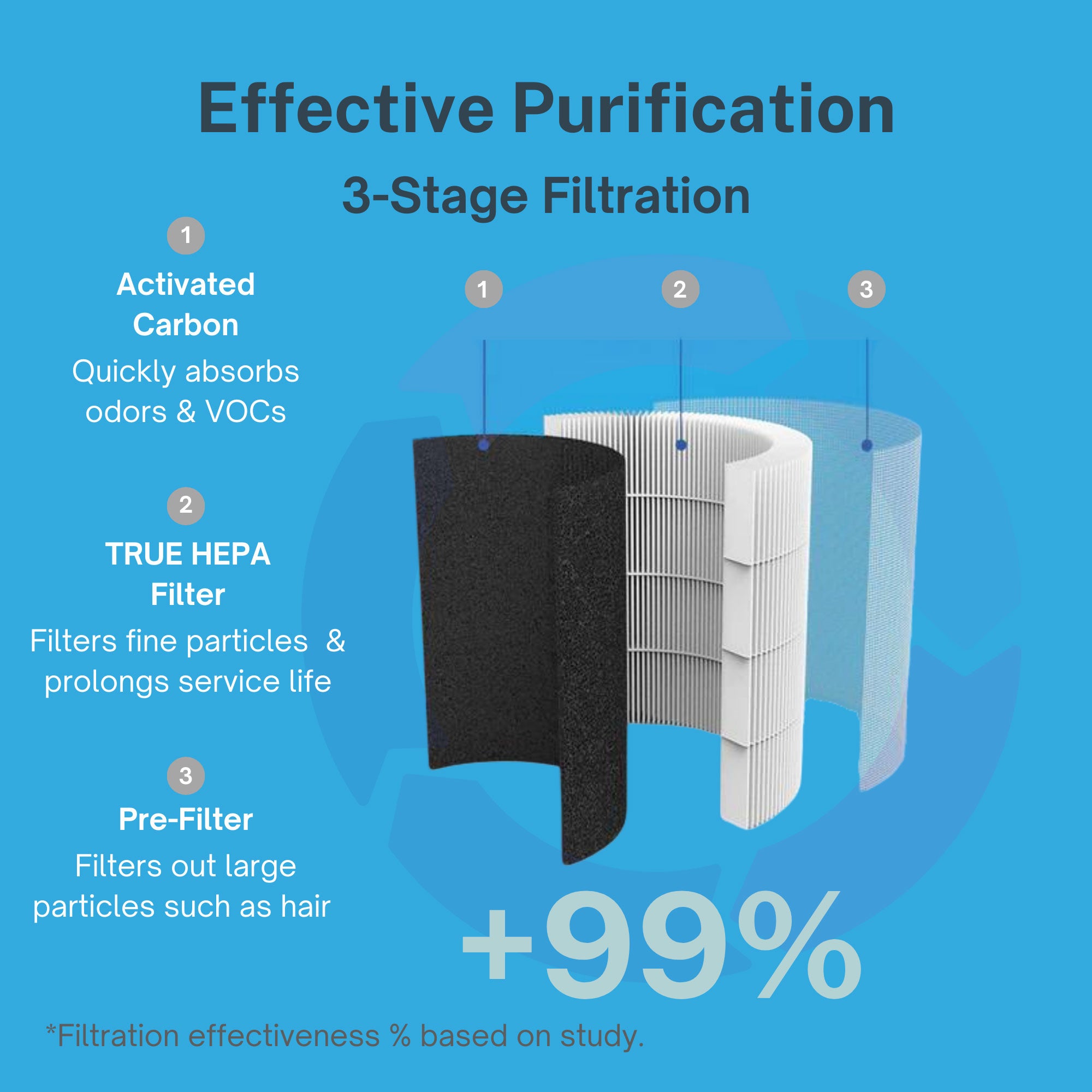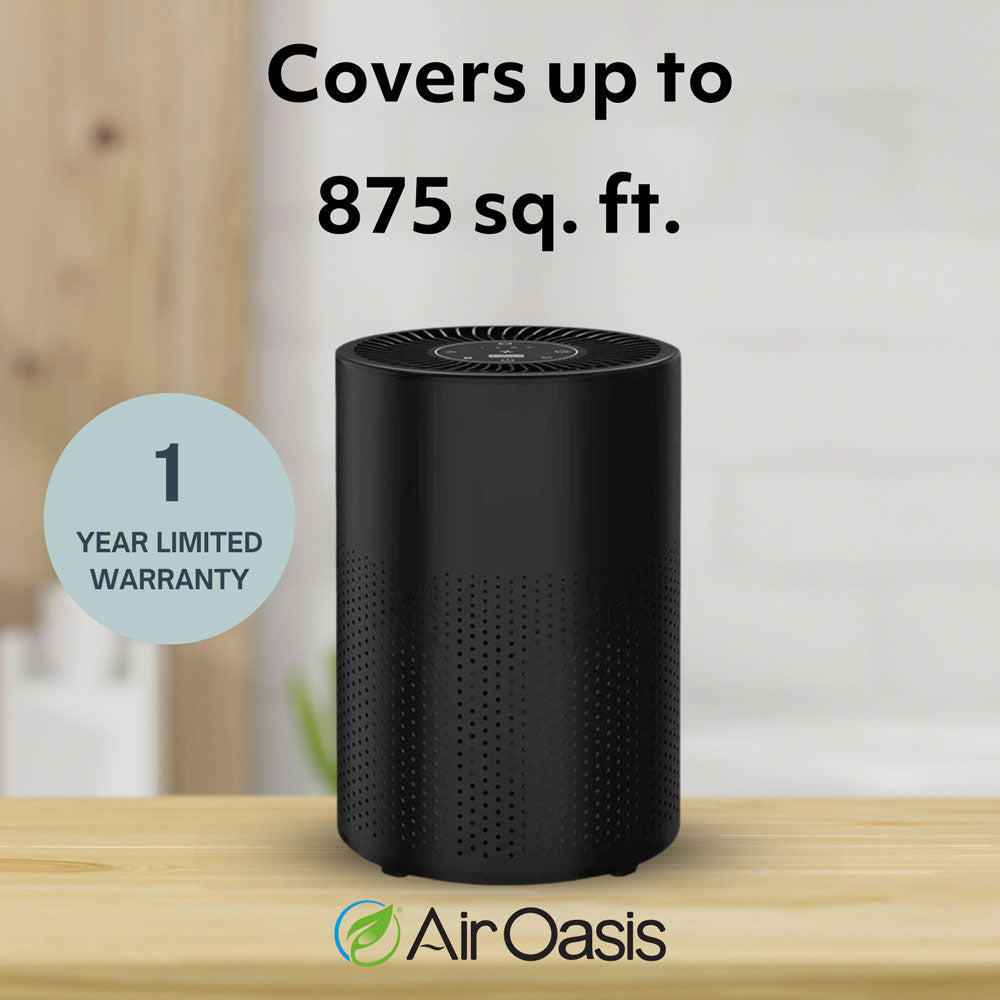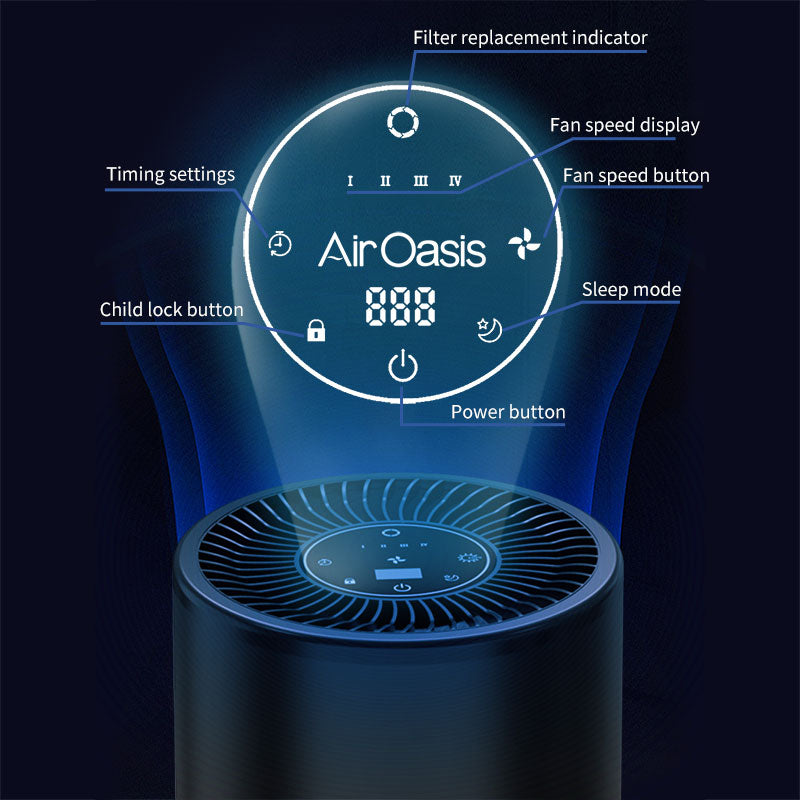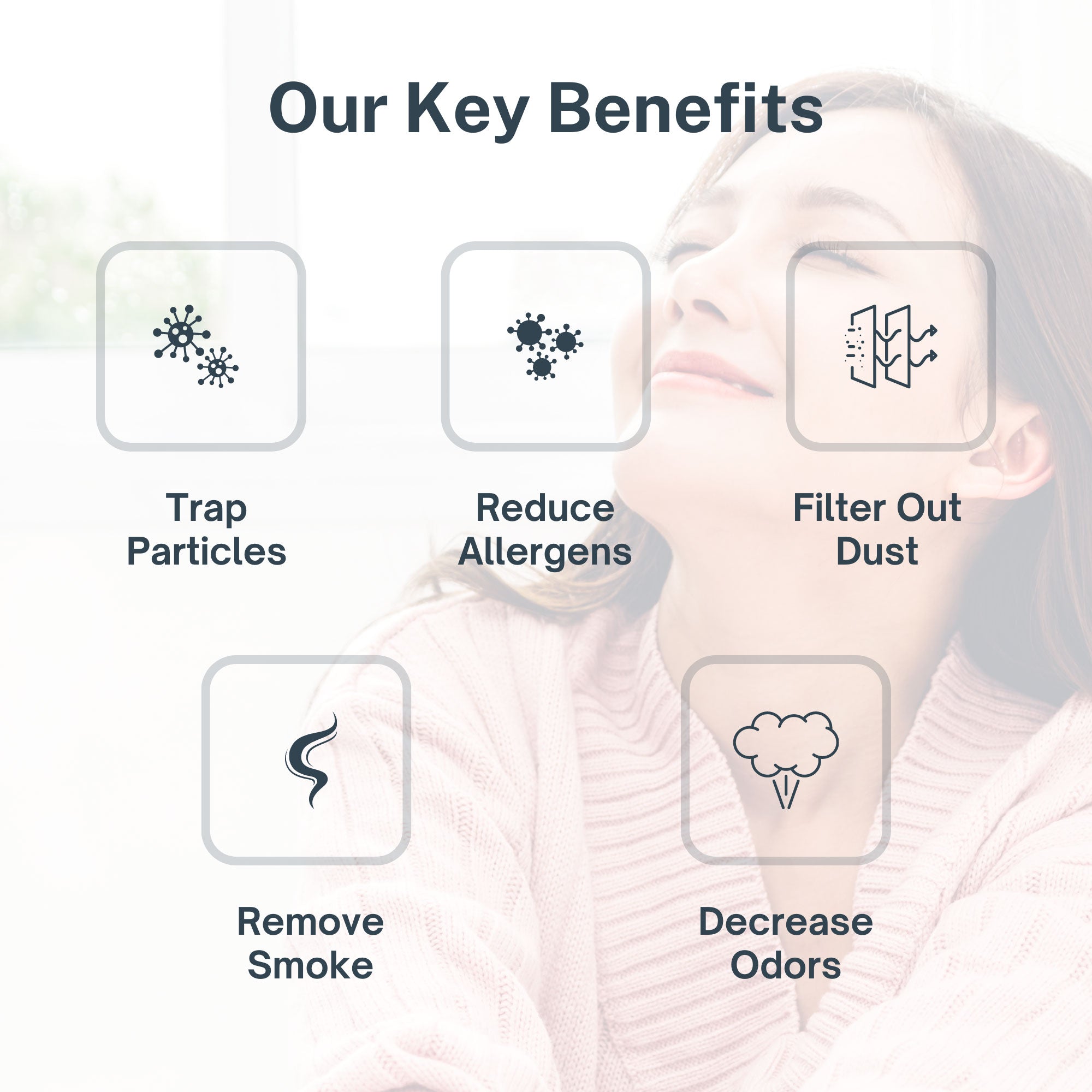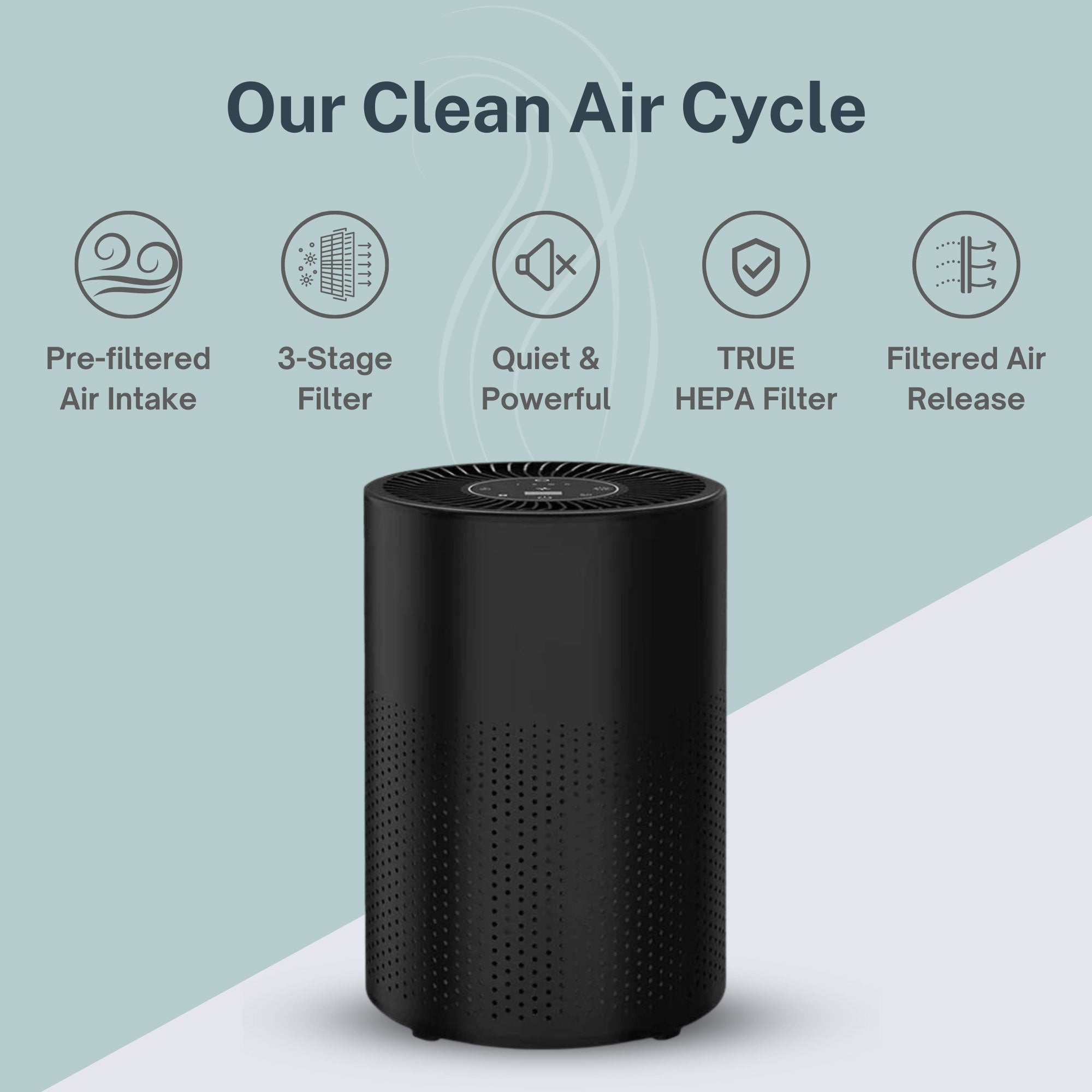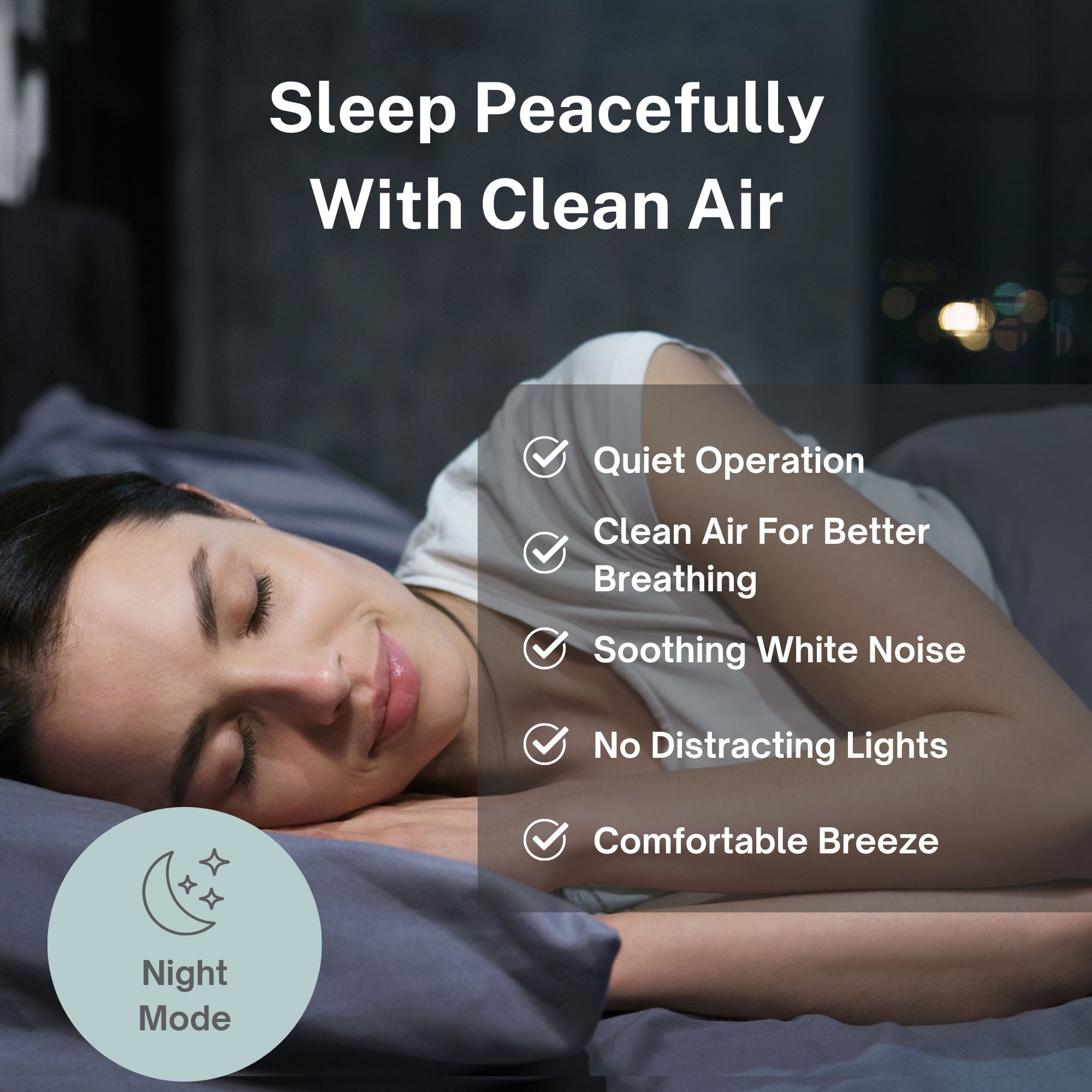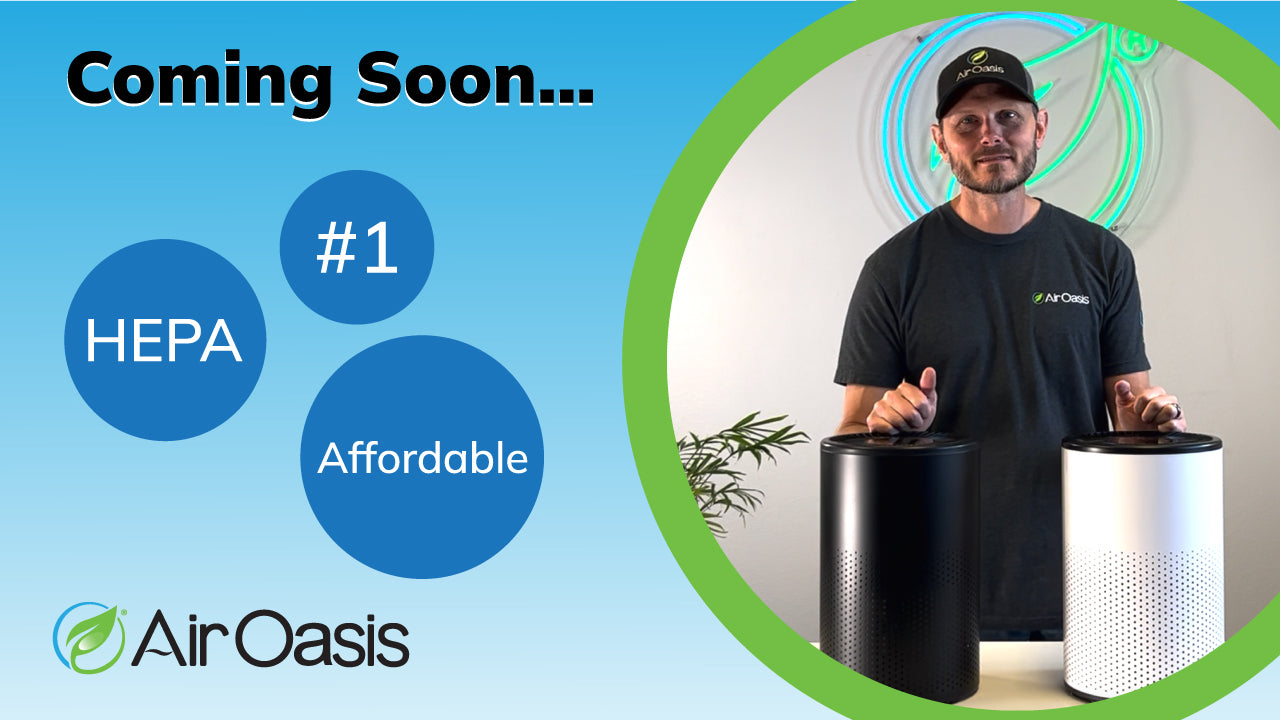Wildfire season is ablaze throughout the United States.
The National Interagency Fire Center reported that so far in 2024, over 28,000 fires have burned just shy of 4.5 million acres—nearly four times more than last year—and we’re just approaching “peak” fire season.
If you’ve ever experienced a nearby wildfire, you know how quickly that distinctive smoky smell can seep into everything it touches, including your home.
Though often top of mind, the smell isn’t the only concern—wildfire smoke carries tiny particles and gases that can have serious health implications, like asthma flare-ups, bronchitis, heart problems, and more.
With fires roaring coast to coast, it’s important to take preventative measures to protect your indoor air quality. Let’s learn how an air purifier for smoke can aid in this effort.
What’s Wildfire Season?
Wildfire season is a blanket term that indicates the time of year when wildfires are most likely to occur. Technically speaking, it’s marked by the dates of the first and last large fires that are controlled.
Given the prevalence of hot, dry weather, wildfires tend to spark in the summer and early fall, though climate change is inching the peak earlier and earlier. Researchers in California, for example, concluded that wildfire season has considerably expanded in length and that the yearly peak jumped from August to July.
The reasons for these shifts vary, including environmental factors like higher temperatures and droughts, as well as human causes like campfires, construction, power line disruptions, and more.
And with all these fires comes a deluge of smoke.
Here’s what that means for you.
The Problem with Wildfire Smoke
Wildfire smoke is a complex mixture of gases, particulate matter, and other pollutants that can travel vast distances from the original fire site.
The primary concern with wildfire smoke is the fine particulate matter, known as PM2.5, which consists of particles that are 2.5 micrometers in diameter or smaller. These particles are about 30 times smaller than the width of a human hair, allowing them to penetrate deep into the lungs and even enter the bloodstream.
Composition of Wildfire Smoke
Wildfire smoke is made up of a variety of harmful components, including:
- Fine Particulate Matter (PM2.5): These tiny particles can bypass the body's natural defense mechanisms and lodge deep in the lungs, causing a range of health issues.
- Gaseous pollutants: These include carbon monoxide, volatile organic compounds (VOCs), and hazardous air pollutants like polycyclic aromatic hydrocarbons (PAHs).
- Other particles: Larger particles, though less likely to penetrate deep into the lungs, can still irritate the eyes, nose, and throat.
Health Risks Associated with Wildfire Smoke
Exposure to wildfire smoke can lead to various immediate and long-term health problems. Some of the immediate effects include:
- Respiratory issues: Coughing, wheezing, shortness of breath, and asthma attacks are common reactions to inhaling smoke.
- Eye and throat irritation: Stinging eyes, scratchy throat, and runny nose are typical symptoms during smoke exposure.
- Cardiovascular problems: Fine particulate matter can enter the bloodstream, leading to inflammation and potentially causing heart attacks or other cardiovascular issues.
Different people will react differently to prolonged or acute exposure to wildfire smoke. Given their developing respiratory systems, children are at high risk for health concerns. Those over 65 are typically more prone to health issues like high blood pressure and heart dysfunctions, both of which can be exacerbated by smoke. People with pre-existing conditions like asthma, COPD, diabetes, and heart disease are also at a higher risk of complications.
And the risks aren’t just short-term.
A study focusing on California wildfires from 2008 to 2018 found that PM2.5 emissions from these fires could be linked to as many as 55,710 premature deaths. Chronic exposure can lead to persistent respiratory issues, reduced lung function, and increased susceptibility to respiratory infections.
So what can you do to protect your home and loved ones from wildfire smoke? Invest in air purifiers.
The Benefits of Using Air Purifiers for Wildfire Smoke
As wildfires rage and smoke infiltrates our homes, air purifiers emerge as essential allies in maintaining indoor air quality. They offer a range of benefits that can significantly improve your living environment during wildfire season. Here’s how an air purifier can help you breathe easier and stay healthier when the air outside is anything but clean.
1. Removal of Harmful Particles
Air purifiers equipped with true HEPA (High-Efficiency Particulate Air) filters, like the iAdaptAir 2.0 are particularly effective at capturing fine particulate matter (PM2.5) that wildfire smoke releases.
Medical-grade HEPA filters can trap up to 99.97% of particles as small as 0.05 microns, including smoke, dust, pollen, and pet dander. By reducing the concentration of these harmful particles in your home, air purifiers help minimize respiratory irritation and other health risks.
Consider an air purifier that adds another level of air cleaning with bi-polar ionization (a.k.a. Cold plasma). This non-ozone-producing technology has an added effect of clearing the air of particles, even those that do not pass through a filter.
2. Reduction of Gaseous Pollutants
In addition to particulate matter, wildfire smoke contains various gaseous pollutants, including volatile organic compounds (VOCs) and carbon monoxide. Our air purifiers come with activated carbon filters that can absorb these gases, helping to improve indoor air quality. This is particularly important for reducing odors and harmful fumes that can linger after a fire.
3. Alleviation of Allergens and Irritants
Wildfire smoke can exacerbate allergies and asthma symptoms by introducing additional irritants into the air. Air purifiers not only filter out smoke particles but also capture other allergens like pollen, mold spores, and dust mites. This dual action can lead to a more comfortable indoor environment, especially for those with pre-existing respiratory conditions.
4. Enhanced Overall Indoor Air Quality
Using an air purifier can significantly enhance the overall air quality in your home. By continuously filtering the air, these devices help create a cleaner, healthier living space. This is especially beneficial during wildfire season when outdoor air quality can fluctuate dramatically.
5. Peace of Mind
Knowing that you have an effective air purification system in place can provide peace of mind during wildfire season. You can feel more secure in your home, knowing that you are taking proactive steps to protect your health and the health of your family. This mental relief is invaluable, especially when facing the uncertainties of wildfire smoke and its effects.
The benefits of using air purifiers during wildfire season extend beyond immediate relief from smoke and pollutants. They play a crucial role in maintaining a healthy indoor environment, alleviating allergy symptoms, and providing peace of mind. As we navigate the challenges posed by wildfire smoke, having an effective air purification system can make all the difference in ensuring that your home remains a safe haven.
Tips to Maximize Your Air Purifier’s Effectiveness for Wildfire Smoke
To get the most out of your air purifier during wildfire season, it's essential to use it correctly and maintain it properly. Here are some practical tips to help you maximize the efficiency of your air purifier and ensure that your indoor air remains as clean as possible.
- Optimal placement: To evenly distribute clean air, position your air purifier in a central location away from major obstructions.
- Continuous running: During wildfire season, you’ll likely want to keep your air purifier running 24/7. First, consider your fan speed. You may want to use higher fan speeds during peak smoke hours and lower speeds when air quality improves.
- Regular maintenance and filter changes: Thoroughly read your manufacturer’s guidelines and replace filters as needed. Most HEPA filters tend to require replacement every 6-12 months, depending on usage, but some can last up to two years!
- Monitor indoor air quality: Check your air purifier’s built-in quality sensors for real-time feedback on your air quality. This will help ensure your system is working properly and give you feedback on how to adjust the settings to meet your needs.
Air purifiers are only one piece of the puzzle. Complement the work it’s doing with other measures, such as:
- Properly sealing windows and doors: In addition to keeping your windows and doors closed as much as possible during wildfire season, ensure you’re applying weatherstripping materials to seal gaps.
- Using HEPA vacuum cleaners: Use a vacuum cleaner with a HEPA filter to reduce dust and particulate matter in your home.
- Limit ventilation: Avoid over-using ventilation systems like exhaust fans that can draw outdoor smoke into your home.
- Indoor plants: Some indoor plants can help improve air quality by absorbing pollutants, though they should not replace air purifiers.
Fight Wildfire Smoke with Air Purifiers
As wildfire season intensifies, the importance of air purification cannot be overstated. Wildfire smoke poses significant health risks, with fine particulate matter and harmful gases infiltrating our homes and affecting the air we breathe. Utilizing an air purifier is a proactive step to mitigate these risks, ensuring that your indoor air quality remains safe and healthy.
Air Oasis offers some of the best air purification solutions on the market, specifically designed to combat the challenges posed by wildfire smoke. With advanced filtration technologies, including HEPA and activated carbon filters, our products effectively capture harmful particles and gases, providing you with cleaner air and peace of mind.
Investing in an Air Oasis air purifier protects your health during wildfire season and enhances your overall indoor environment year-round. Don’t wait for the smoke to settle—take action now to safeguard your home and health from smoke with Air Oasis.




